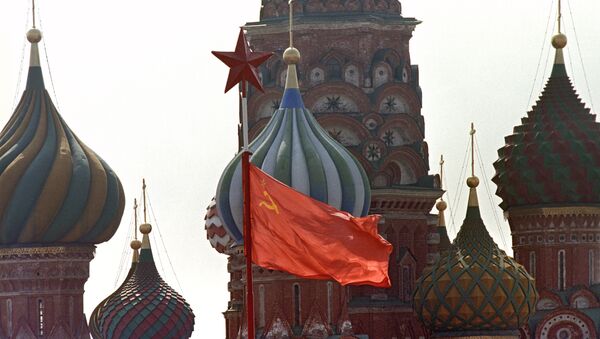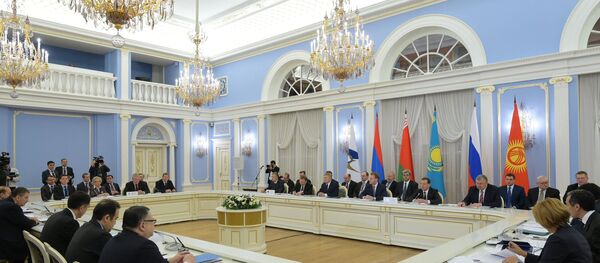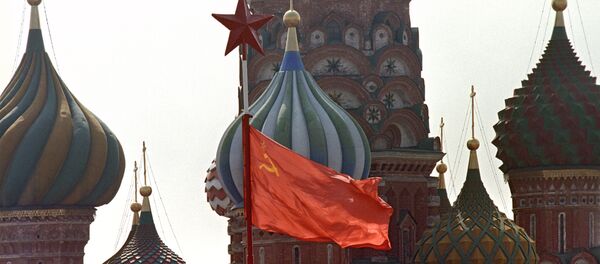MOSCOW (Sputnik) – Modrow, the last head of the German Democratic Republic’s government and now the honorary Chairman of the Left Party, found himself in the middle of the events which saw the GKChP trying to oust then-president Mikhail Gorbachev over its discontent with the proposals for reforms of the Soviet Union 25 years ago.
Modrow met with then-vice president Gennady Yanayev prior to heading to Crimea for a holiday. The official told him that a signing of an agreement of Union Treaty was planned for August 20. The GKChP believed that this would become a breakdown of the Soviet Union, and the coup’s aim was to stop this.
"And that’s how it was – the draft of the new program was published in the newspaper, and the [information about] preparation of the Union of Independent States [UIS] was known from Pravda [newspaper]. It was an absolute surprise for me when the putsch took place," Modrow said.
The East German official found himself in Crimea in proximity to Gorbachev, who was spending his vacation at a government residence in Foros, as well as putsch leaders, including then-interior minister Boris Pugo.
"They did not view this as a putsch. They assumed that they were acting on a legal basis, citing an emergency situation which by law could be announced in special situations… The situation was very confusing. Members of the GKChP, evidently, were trying to prevent the process of the Soviet Union dissolution and creation of the UIS," the former prime minister reminisced.
According to Modrow, Gorbachev believed he would be the one to save the day, and thought he could still be president.
However, the situation unfolded in a different way. President of the Russian Soviet Federative Socialist Republic (RSFSR) Boris Yeltsin became the head of the resistance against the putsch and the GKChP. All executive agencies of the Soviet Union, including law enforcement agencies, were re-subordinated to him after he signed several executive orders deeming the establishment of the GKChP an attempted coup d’etat.
"Yeltsin understood that he was coming to power and expanding his structures thanks to the putsch," Modrow said.
The three-day abortive coup showed that society did not support the GKChP. On August 24, Gorbachev resigned from the position of the general secretary. Gorbachev ruled the country for several more months solely as the Soviet president, but resigned from the position in December. Yeltsin remained in his post as the Russian leader.
"In December 1991… he [Yeltsin] met with Ukrainian President Leonid Kravchuk and Belarusian President Stanislav Shushkevich, and they sat in the forest completely drunk working on a new CIS draft agreement," Modrow added.





